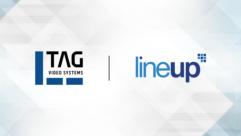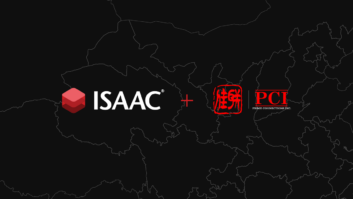
TAG Video Systems Releases Webinar Series Highlighting Best Business Practice in the Transition to IP
Virtual series explains how to leverage Multiviewer technologies for business benefits as the industry migrates to IP architecture, Cloud and OTT solutions
Tel Aviv – April 9, 2020 — TAG Video Systems, the world leader in 100% SW, 100% IP, 100% COTS/Cloud,
Probing, Monitoring and Multiviewing solutions, has released details of its continuing webinar series designed to bring real life solutions to the challenges facing broadcasters as the industry migrates to IP. The next session, scheduled for Wednesday April 15, 2020, at 11:00am US Eastern Time will tackle the business end of the IP transition delving into financial benefits and profitability, the move to OPEX, new Zer0 Friction BUSINESS model, the impact of OTT and Cloud technology and more. Abe Zerbib, TAG CEO and Kevin Joyce, TAG Zer0 Friction Officer will serve as co-hosts.
Attendees will enjoy detailed discussion focusing on: “The Business of IP: The Profit Behind Your Transition to IP”
Topics covered will include:
What does the move to OPEX and cloud really mean to you?
How can companies avoid paying for equipment that’s rarely used?
How does one optimize to support a variable mix of uncompressed, compressed, J2K and OTT applications?
Why is the Zer0 Friction business model The Holy Grail for the Media and Entertainment industry?
Future webinars include:
Live Production Multiviewing in the Cloud – April 30th
Changing Your Facility Architecture on the Fly: The New IP World – May 14th
New Technology for IP migration – May 28th
OTT: New Cloud Probing and Multiviewing – June 16th
Playout: New Cloud Multiviewing and Probing – July TBA
Kevin Joyce, TAG Zer0 Friction officer noted, “During these difficult times it’s more important than ever for broadcasters to reduce operating costs while still continuing to improve quality of experience. These webinars, which will take place over the next three months, will provide existing and potential customers with the information that they need to continue best business practice while they transition to IP.”










